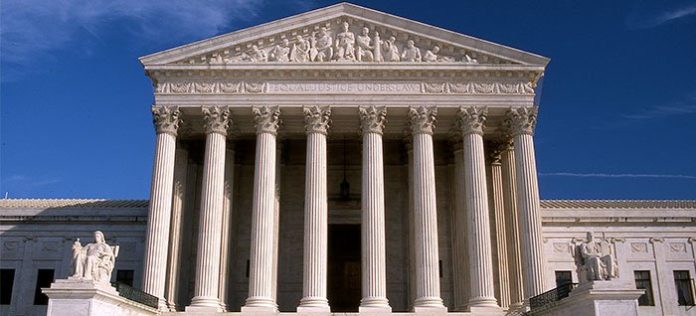
On Wednesday, the U.S. Supreme Court agreed to hold emergency hearings on the Occupational Safety and Health Administration’s vaccine-or-test emergency temporary standard and the Centers for Medicare and Medicaid Services’ requirement that employees at all participating health care facilities be fully vaccinated. The court was not scheduled to reconvene until Jan. 10, but will hold the hearing on Jan. 7.
Two court orders released on Dec. 22 consolidated four applications for stays — Biden v. Missouri and Becerra v. Louisiana and National Federation of Independent Businesses v. Department of Labor and Ohio v. Department of Labor — that challenge the ETS and the CMS rule.
The cases ask the Supreme Court if the rules should be allowed to go into effect during pending court proceedings. The applications for stay presented to Justices Brett Kavanaugh and Samuel Alito were filed after a decision by the 6th Circuit Court of Appeals lifted an injunction against the ETS.
The ETS, first announced in November, is estimated to impact 84 million workers across the country. The ETS was stayed by the 5th Circuit Court of Appeals shortly after being announced, but last week the Sixth Circuit lifted the stay. OSHA announced on Dec. 18 that it would delay enforcing the standards until Jan. 10 and provide leniency to employers demonstrating good faith effort to implement the ETS.
The ETS applies to most private employers with more than 100 workers. It requires employers to create and enforce a written COVID-19 vaccination policy that requires any unvaccinated workers receive regular testing and wear masks at work. Non-compliant workplaces could be hit with fines of $13,653 per serious violation capped at $136,532.
The CMS rule, also announced in November, affects 17 million health care workers at 76,000 facilities. A handful of lower court rulings blocked the rule from going into effect.
The two cases on the ETS are Biden v. Missouri and Becerra v. Louisiana. The two cases on the Centers for Medicare and Medicaid Services are National Federation of Independent Businesses v. Department of Labor and Ohio v. Department of Labor. Each set of lawsuits is scheduled for one hour of oral arguments in front of the court.

